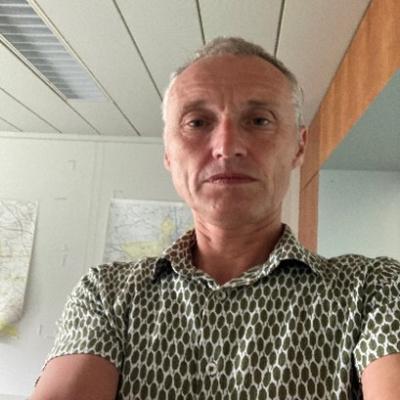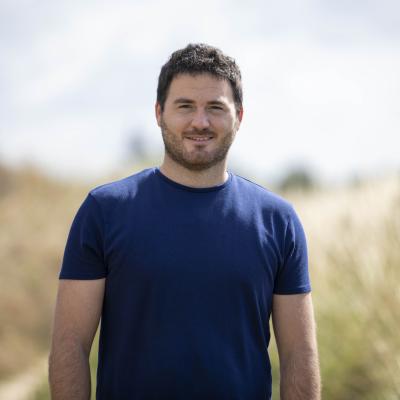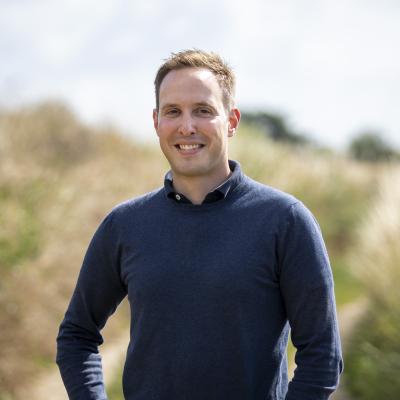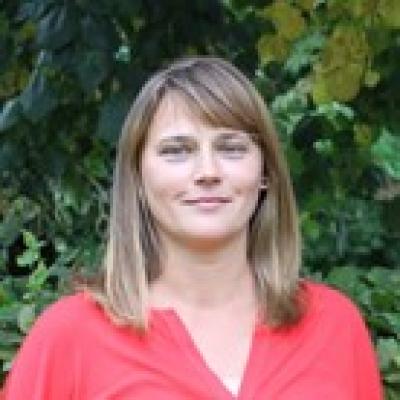Belgium

(VLM) VLAAMSE LANDMAATSCHAPPIJ and Boerennatuur
VLM focuses on an area-based approach to improving the quality of the environment in rural regions and peri-urban open spaces. VLM invests in the improvement of environmental quality in Flanders using a range of instruments: land and nature development, land reallocation, agri-environmental measures (AEM), manure bank, and land banking. VLM is the Managing Authority for agri-environmental measures of the CAP. VLM is used to work together with Flemish rural stakeholders.
Role & Responsibilities
VLM will be involved in all WPs.
In WP1 VLM leads the task concerning the classification system for herb rich grasslands. VLM’s experience in rich-herb grasslands will be an asset for the partnership.
VLM will set up different sample farms and field labs across Flanders. At these demo-farms their herb-rich grasslands will be analyzed through the developed software of AG Spectro and then merged/analyzed.
In WP3 VLM will set up different regional field labs and develop experiments.
As a governmental organization involved in policy VLM will take a leading role in WP4. And will take the lead in developing the policy recommendations and will organize a policy event in Brussels.
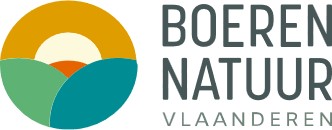
Boerennatuur Vlaanderen
Boerennatuur Vlaanderen is a network organization of groups of farmers working agro-environmental measures within an economic farm business. Activities of Boerennatuur Vlaanderen focus on advising farmers on biodiversity, landscape, soil and water management, facilitating collaboration and networking with other actors, development of innovative projects and policy advise. In the board of Boerennatuur Vlaanderen farmer groups, Flemish farmer unions Boerenbond & Algemeen Boerensyndicaat and agricultural and nature administrations are represented.
Role & Responsibilities
Boerennatuur Vlaanderen will use its network to motivate, select and assist farmers to participate in the regional field labs (WP1) and facilitate the learning networks in Flanders, stimulating learning between farmers and other experts, organise demonstration and communication activities (WP2). In WP3 they will assist farmers in codesigning and implementing experimental interventions. In WP4 they will gather knowledge on benefits, barriers and incentives for farmers and develop policy recommendations.
Sub-partner Boerenbond (BB) will be involved in WP1, 3 and 4. They will use their network to raise awareness with farmers to be involved in the field labs and learning networks and communicate the outputs and activities of the project to the wider farming community in Flanders. BB will be involved in the socio-economic assessment of the interventions in the field labs and the design and dissemination of policy recommendations.
Sub-partner Innovatiesteunpunt voor Landbouw en Platteland (ISP) will assist the partners with rolling out participatory approaches for effective colearning between farmers and experts (WP2)
France

Brittany Chambers of Agriculture
The Brittany Chambers of Agriculture are self-governing public bodies, managed by elected representatives from the agriculture and forestry sectors. The Brittany Chambers of Agriculture are a regional organization at the service of farmers and land-related projects, facing the challenges of tomorrow’s agriculture. Our broad skill set and strong local networks, our training centers and experiment stations enable us to :
- Support, advise and train farmers, future technicians, farm workers
- Lead and facilitate technical groups in the fields of livestock, crop production, farm strategy, environment, agricultural policy and regulatory issues
- Work at grass-roots level to bring together farmers and local stakeholders to foster joint projects
- Contribute in research programs focused on developing innovative solutions within national (CASDAR, Inosys, Dephy, F@rm XP…) and European networks (Interreg, H2020, etc.)
- Promote and transfer innovative practices during technical days, trade fairs, and international conferences
Role & Responsibilities
- Research and Innovation trials and demonstrations with aim of creating new references, tools, farming practices :
- Dairy Experimental Farms of Trévarez:
- Monitoring the evolution of an agroforestry plot
- Monitoring the evolution of temporary grasslands
- Comparison between management methods of temporary and permanent grasslands
- Dairy farmer's networks to demonstrate practices allowing the functional agrobiodiversity development
- Dairy Experimental Farms of Trévarez:
- Transfer actions:
- Development of the website dedicated to biodiversity of dairy farms
- Creation of a training support for farmers
- Organize events, write papers and make movies to transfer knowledge to farmers, urban inhabitants, students, processing food industry, public authorities
Germany

trafo:agrar
The Association for Transformation Research in Agriculture Lower Saxony (trafo:agrar) in Vechta site sees itself as a contact point for all partners involved and everyone who wants to put ideas for a sustainable and future-oriented agricultural and food industry into practice. As a team from the association, we operate in a region rich in tradition that is characterized by intensive agricultural and food industries. Together with our network partners, we are committed to the sustainable development of intensive agricultural regions as a whole. We want to proactively transform the economic, ecological and social challenges into perspectives. We network actors from science, business, the population, politics and administration to understand the pressing challenges and develop options for action. We always want to enable a solution-oriented dialogue.
Role & Responsibilities
Project lead and coordination of the project.

University of Vechta
As the largest educational institution, historically and regionally anchored in the Oldenburg Münsterland region, the University of Vechta is internationally and future-oriented: Around 5,000 students and more than 500 employees research, teach, work and study at the modern campus university in the heart of Lower Saxony.
Role & Responsibilities
The professorship of Bioeconomy and Resource Efficiency at Vechta University will contribute to the research part of DivGrass on the barriers to adopting more biodiverse farm management practices that farmers perceive and experience, and how this may inform policy recommendations.

University of Göttingen
The University of Göttingen, founded in 1737, is an internationally renowned research university with 13 faculties. The Institute of Grassland Science is part of the Faculty of Agricultural Sciences which is integrated into activities of the Department of Crop Sciences, of the Centre of Biodiversity and Sustainable Land Use and of the Außenstelle Vechta of the Faculty of Agricultural Sciences.
Role & Responsibilities
UGOE/Grassland Science is a main contributor (main activity) to workpackage 3, ‘Test interventions in fieldlabs’ and will investigate the adoption and success of interventions taken by grassland farmers in the participating countries. The work includes recording of grassland performance on dairy farms in the North Sea region and the possibility of adaptation through biodiversity in grassland in order to achieve greater climate resilience and at the same time promote diversity. To this end, surveys and questionnaires will be conducted on the management, farm structure, feeding and mindset of participating farms in France, Belgium, the Netherlands, Germany and Sweden. The work is flanked by field trials of intervention measures on farms. In return, farms receive data and information on feed quantity and quality as well as on the ecosystem services of grassland.
Netherlands

University of Utrecht
Utrecht University is a leading educational and research institution in the Netherlands. Within it, the Copernicus Institute of Sustainable Development is an interdisciplinary natural/social sciences department that focuses on sustainability research to help accelerate the transition to a sustainable and just society.Sustainable agriculture is an important theme in the strategic research programs at Utrecht University and at the Copernicus Institute.
Role & Responsibilities
Utrecht University will coordinate and conduct the ecological and socio-economic assessments as part of WP3 and actively contribute to the development of evidence-based policy recommendations in WP4 and the dissemination of intermediate findings through (a) scientific presentations and publications; (b) professional articles and presentations; (c) educational activities; and (d) our informal contacts with national stakeholders.
Sweden

Agroväst
Agroväst is a non profit limited company and a driving force to unite research, society, andrural businesses in Western Sweden.
Agroväst‘s mission is to contribute to a proftable and sustainable farming based on high technical standards and good consumer relations. We do this by facilitating an effective dialogue between farmers, the food industry, technology providers and the academy, and by creating possiblities to form projects and attract funds to strengthen farmers and small rural enterprises.
Roles and Responsibilities
Agroväst will be involved and contribute with knowledge and experience in all four workpackages. As Agroväst has a strong experience of linking academia and knowledge transfer with farmers and rural enterprises we will have a special focus on the activities in work package 2, co-learning hub.

